

Upcoming Newsletter: May / June Issue
April 23rd, 2024, at NC State University: View All Issues!
As April draws to a close, the Networked Mobilities Lab is gearing up to release its final newsletter of the semester. This edition will highlight recent projects from our scholars and delve into upcoming events and opportunities.
If you would like to keep in touch with the lab as it transitions from this semester to the next, check out the link and subscribe to our newsletter.
Current News
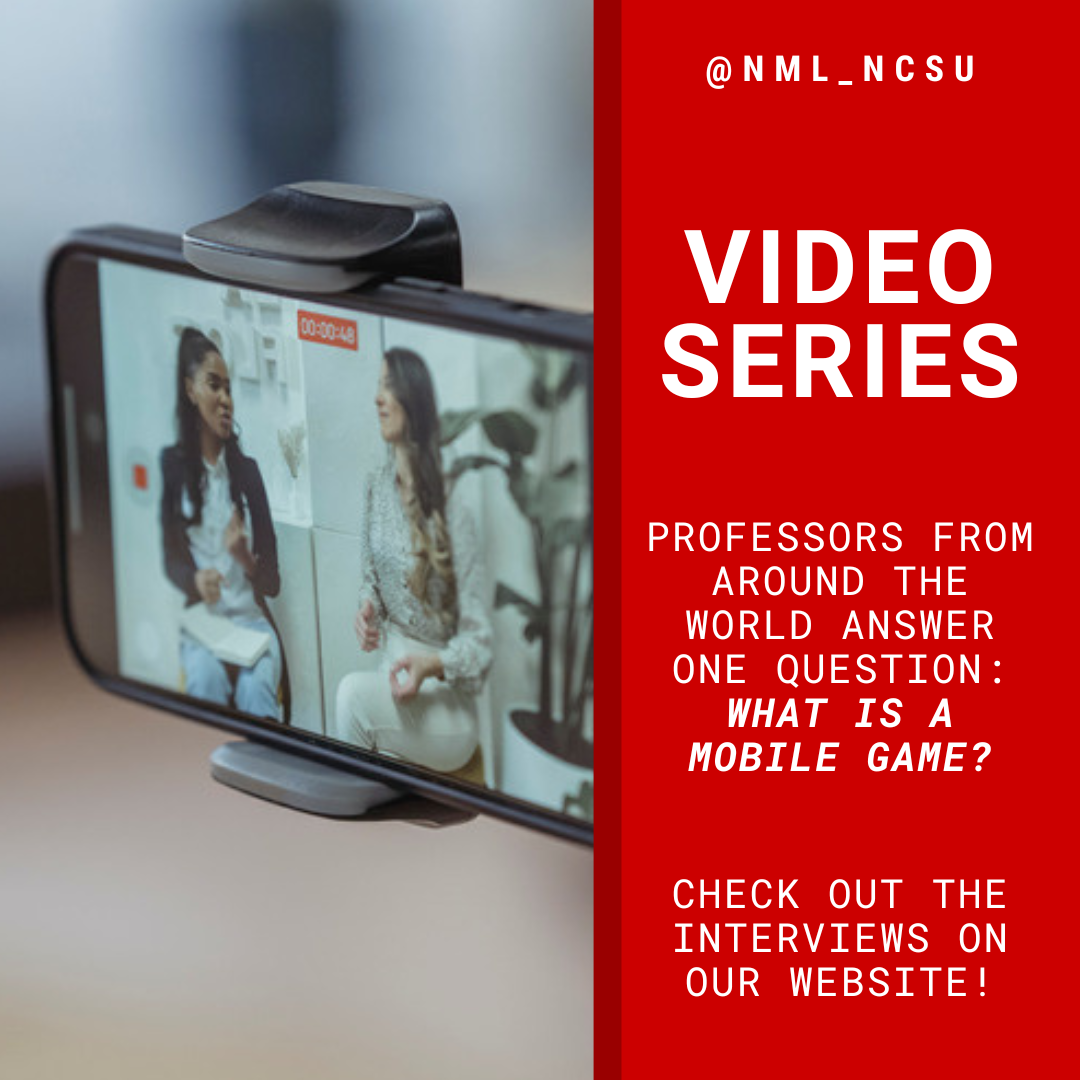
Past Project: The NML Video Series
April 15th, 2024, at NC State University: Found Here!
It's always exciting to revisit past projects!
Did you know that the Networked Mobilities Lab launched a video series on the current climate of mobile technology and video-games? Back in 2022, we engaged with scholars from around the globe to answer a single question: what is a mobile game? How is it defined? What are its affordances? Prepare to be surprised by their responses!
If you're keen on learning about this fascinating project or eager to discover similar content in the future, check out the link.
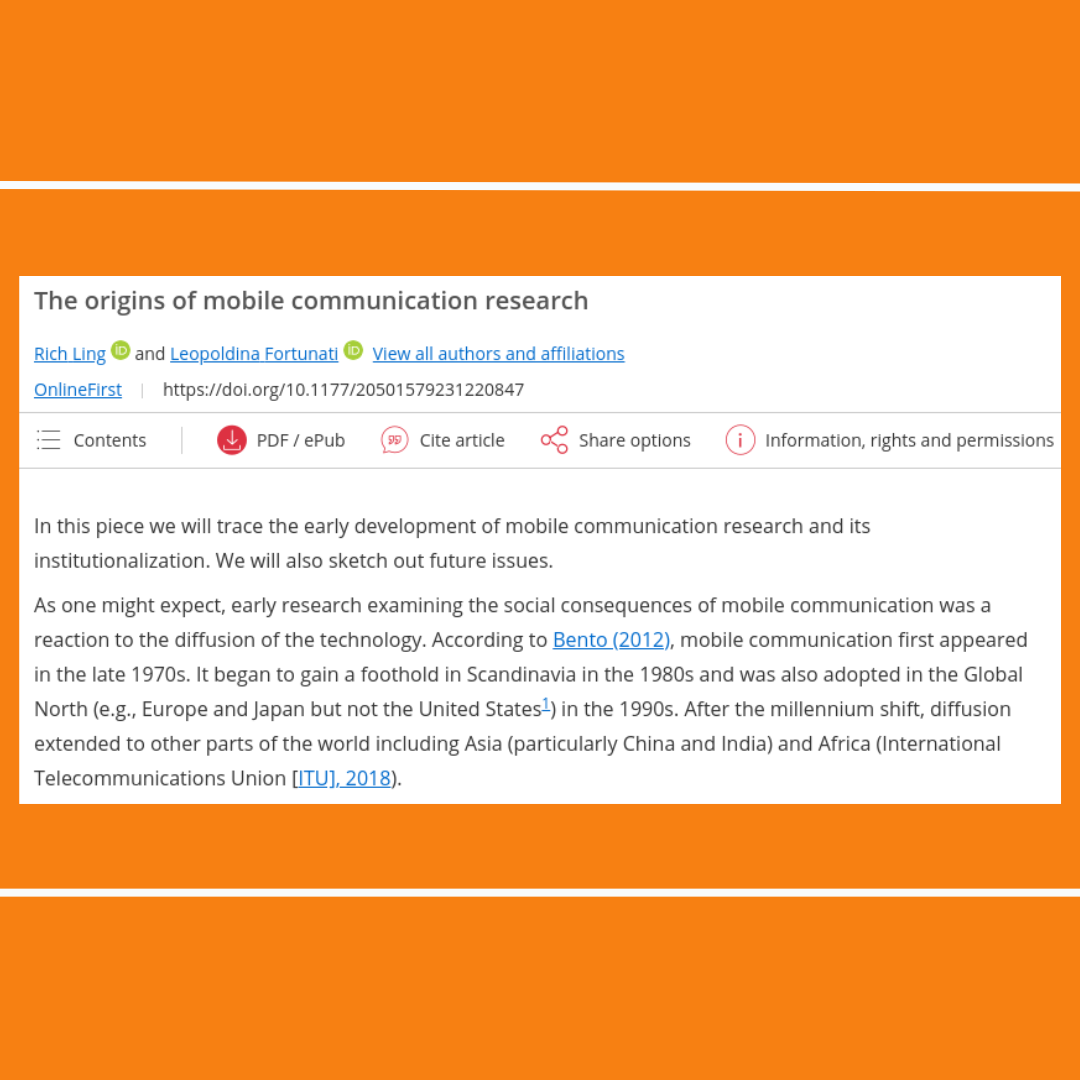
"The Origins of Mobile Communication..."
April 9th, 2024, published on Sage Journals.
Have you ever wondered about the origins of mobile communication research? Look no further than this publication from our esteemed colleague, Dr. Rich Ling, and associates. Their work delves into years of research across various countries and methodologies, culminating in the establishment of the International Communication Association (ICA) in early 2002.
Read all about the ever-growing field of mobile communication by visiting the provided link.
Recent News
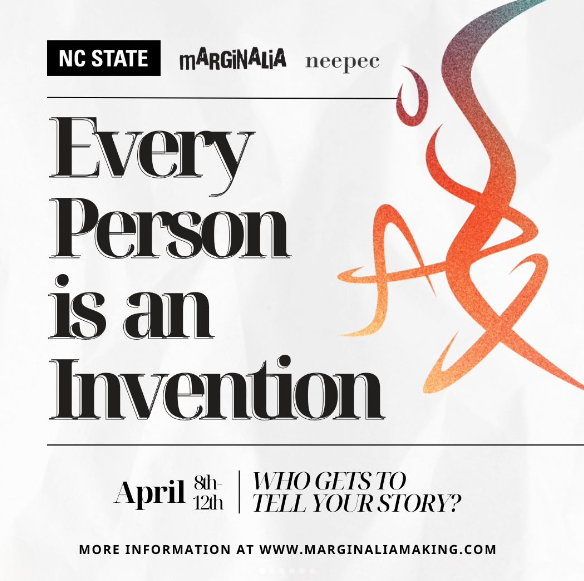
Creating LGBTQ+ Spaces with Mobile Apps
UPCOMING: April 8th - 12th, 2024, at NC State University: Learn More!
Our esteemed faculty member, Dr. Fernanda Duarte, is spearheading an upcoming series through Marginalia Making, entitled "Every Person is an Invention." This event focuses on LGBTQ+ experiences at NC State University, leveraging mobile technology to digitally share and create a safe space for individual stories.
"Every Person is an Invention" unfolds over five days, from April 8th - 12th, and we extend an open invitation to all members of the LGBTQ+ community to engage and participate in this opportunity.
For further details, check out the link.
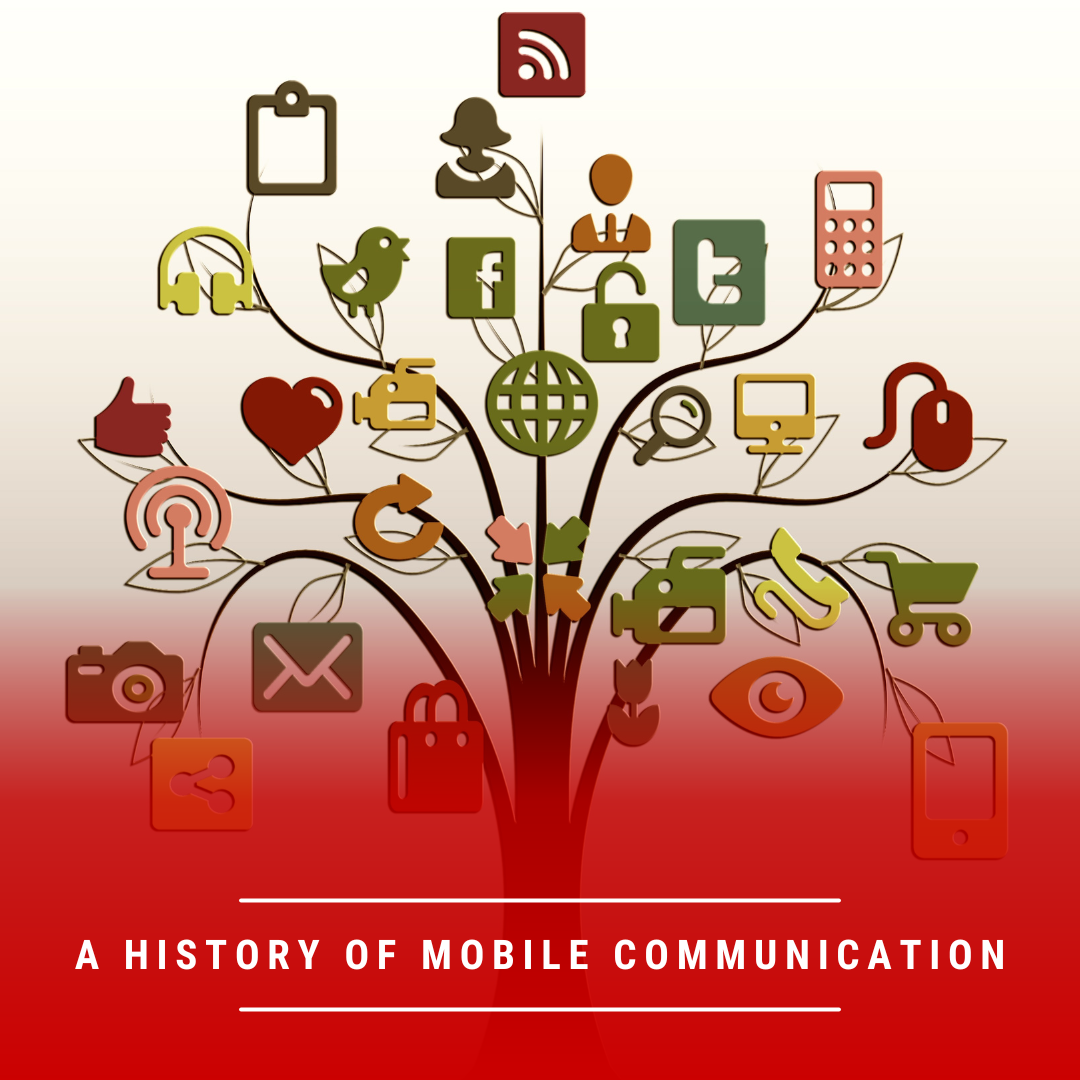
A History of Mobile Communication
April 1st, 2024, at NC State University: Watch It Here!
Another month, another venture!
The Networked Mobilities Lab remains tireless in its pursuit to understand mobile technology. This April, we are thrilled to unveil our latest ongoing project, titled "A History of Mobile Communication." This research delves into the oral history of the International Communication Association: Mobile Communication Division, showcasing dialogue from some of the field's most brilliant scholars.
We invite you to join Drs. Adriana de Souza e Silva and Ragan Glover as they narrate this interconnected history. The series is now available for viewing on YouTube.
Recent News
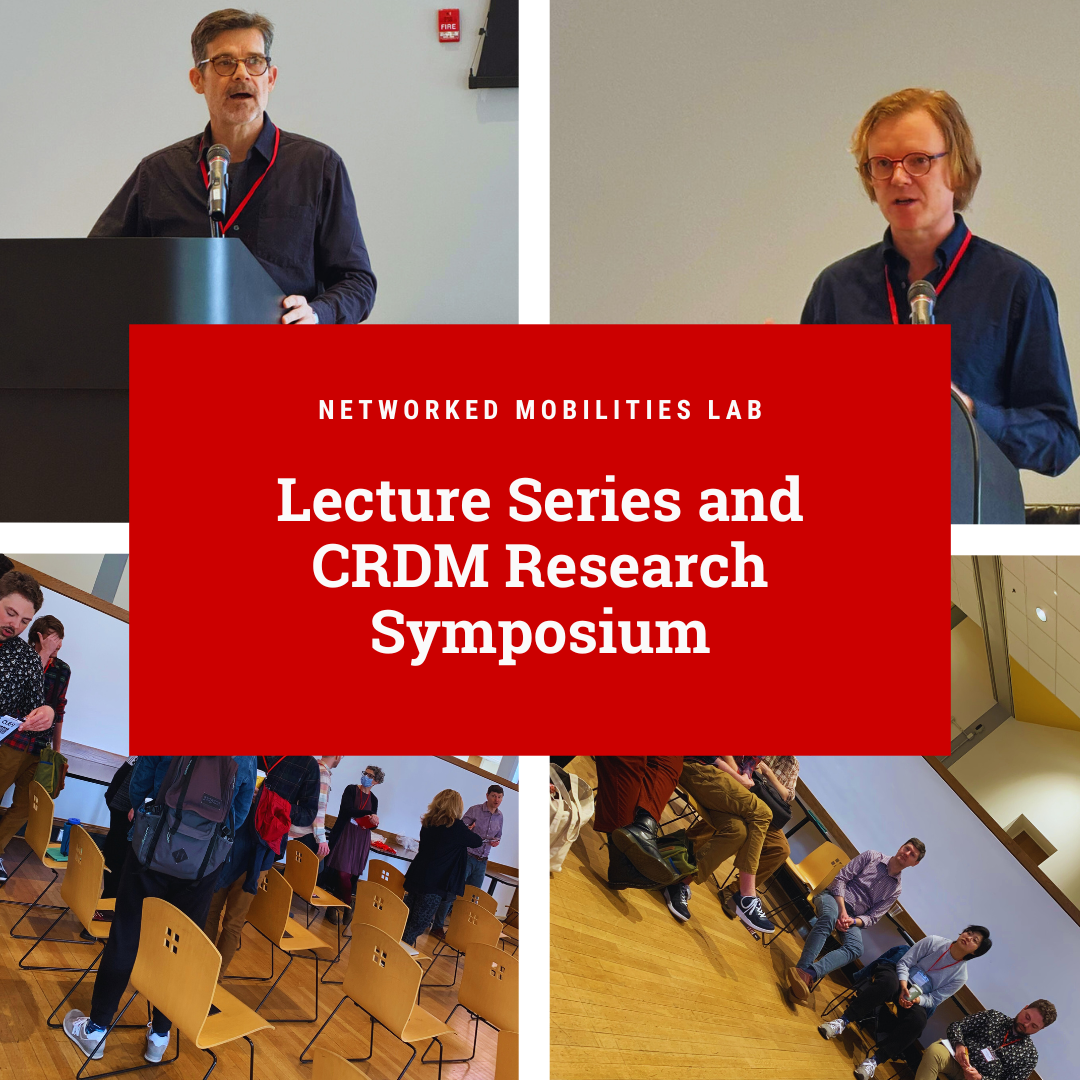
A Successful Lecture Series and Symposium
March 22nd, 2024: Click Here To Watch!
The Networked Mobilities Lab Lecture Series (Spring 2024) and CRDM Research Symposium was a resounding success!
We extend our heartfelt gratitude to our esteemed scholars, Drs. Scott Campbell and Jeffrey Boase, for sharing their valuable insights into mobile technology. The event marked an important collaboration between established scholars and budding graduates, fostering dynamic discussions on the evolving landscape of our changing media environments.
For those who missed the lecture and round-table discussion, the Networked Mobilities Lab is happy to announce that it was recorded and uploaded to YouTube for convenient access.
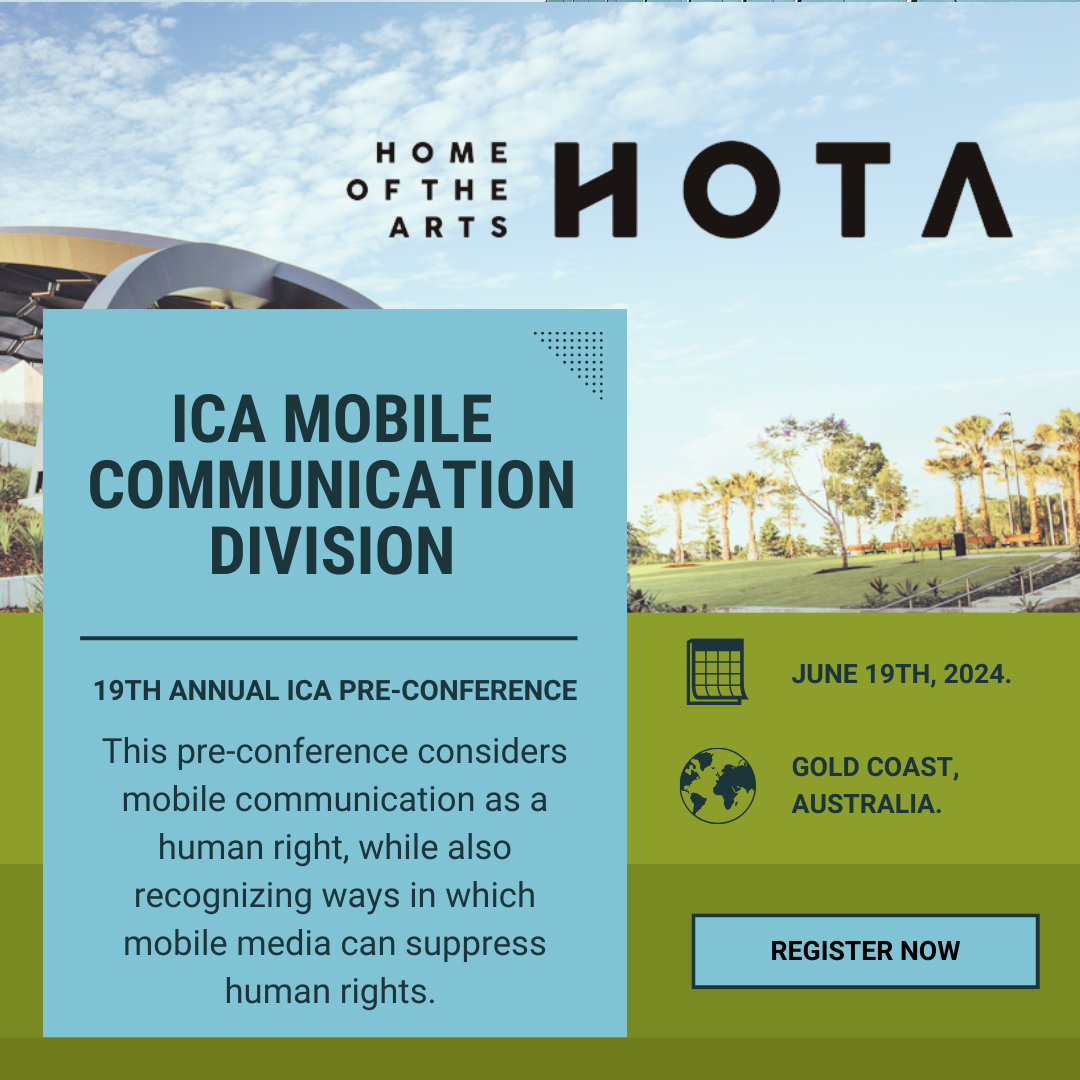
ICA Mobile Communication Division (2024)
Upcoming Event: June 19th, 2024, at Gold Coast, Australia.
Mobile communication has progressed from being new and revolutionary to a taken-for-granted and deeply embedded part of everyday life. Despite its pervasive presence, it has seldom been acknowledged as a fundamental human right.
The ICA Mobile Communication Division (19th Annual Pre-Conference), considers mobile communication as such, while also recognizing the ways in which these technologies can suppress human rights. In the post-smartphone era, where mobile communication is far more pervasive and widespread, we witness the perpetuation of injustices, inequalities, and threats that break through the inclusion and connectivity.
The upcoming conference is scheduled to take place in Gold Coast, Australia, on June 19th. We encourage all scholars to consider submitting their research for potential participation. To learn more about this opportunity, click here.
Recent News
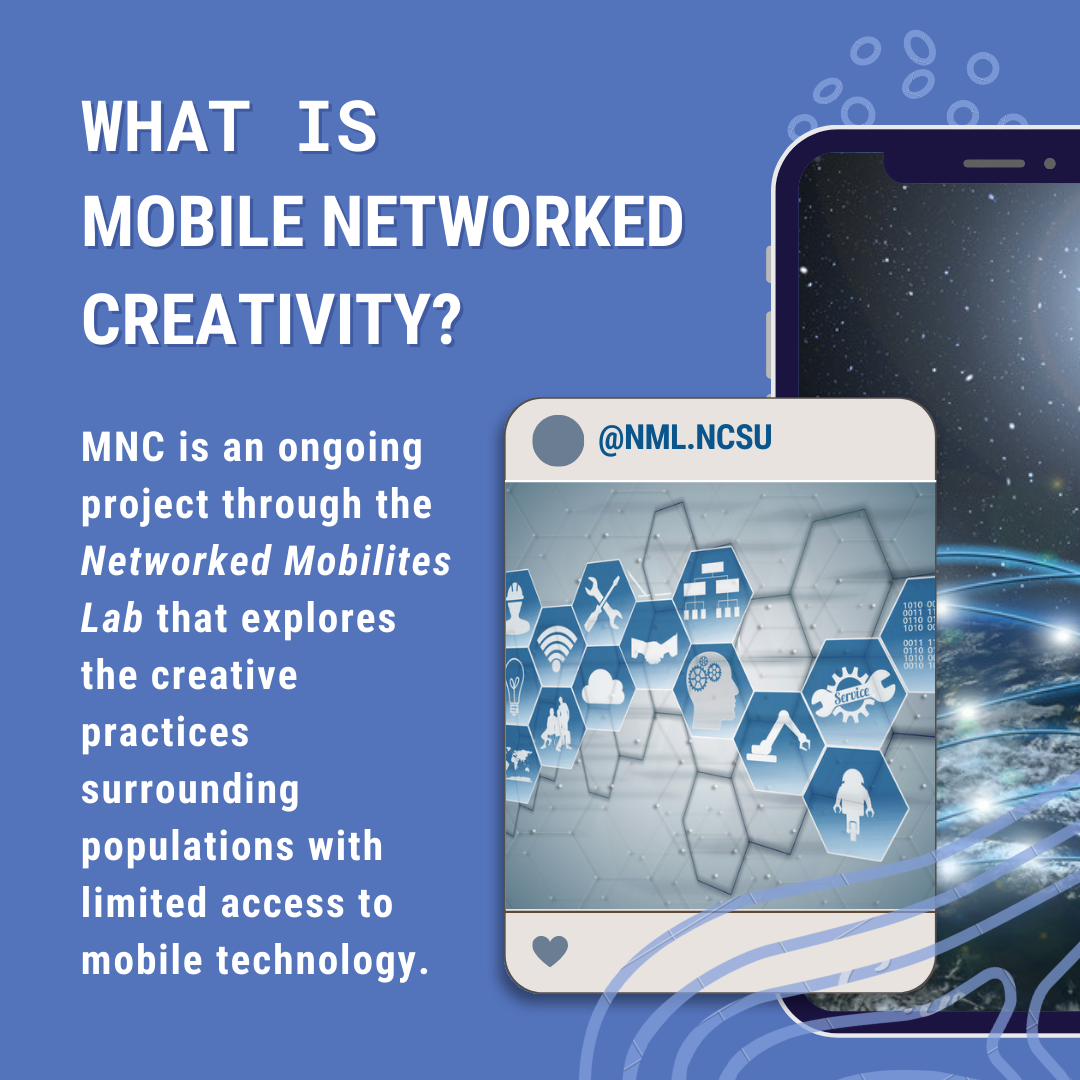
What is Mobile Networked Creativity?
March 20th, 2024, at NC State University.
Mobile Networked Creativity (MNC) is an ongoing projected through the Networked Mobilities Lab, focusing on the creative practices within communities with restricted access to mobile technology and the social contexts in which these rituals emerge.
From initiatives that provide public Wi-Fi on school buses during the COVID 19 Pandemic to rural cinema programs in Pakistan, MNC constantly evolves. The Networked Mobilities Lab is committed to documenting and studying its development.
Discover the narratives and insights gathered by our scholars, visit the link.
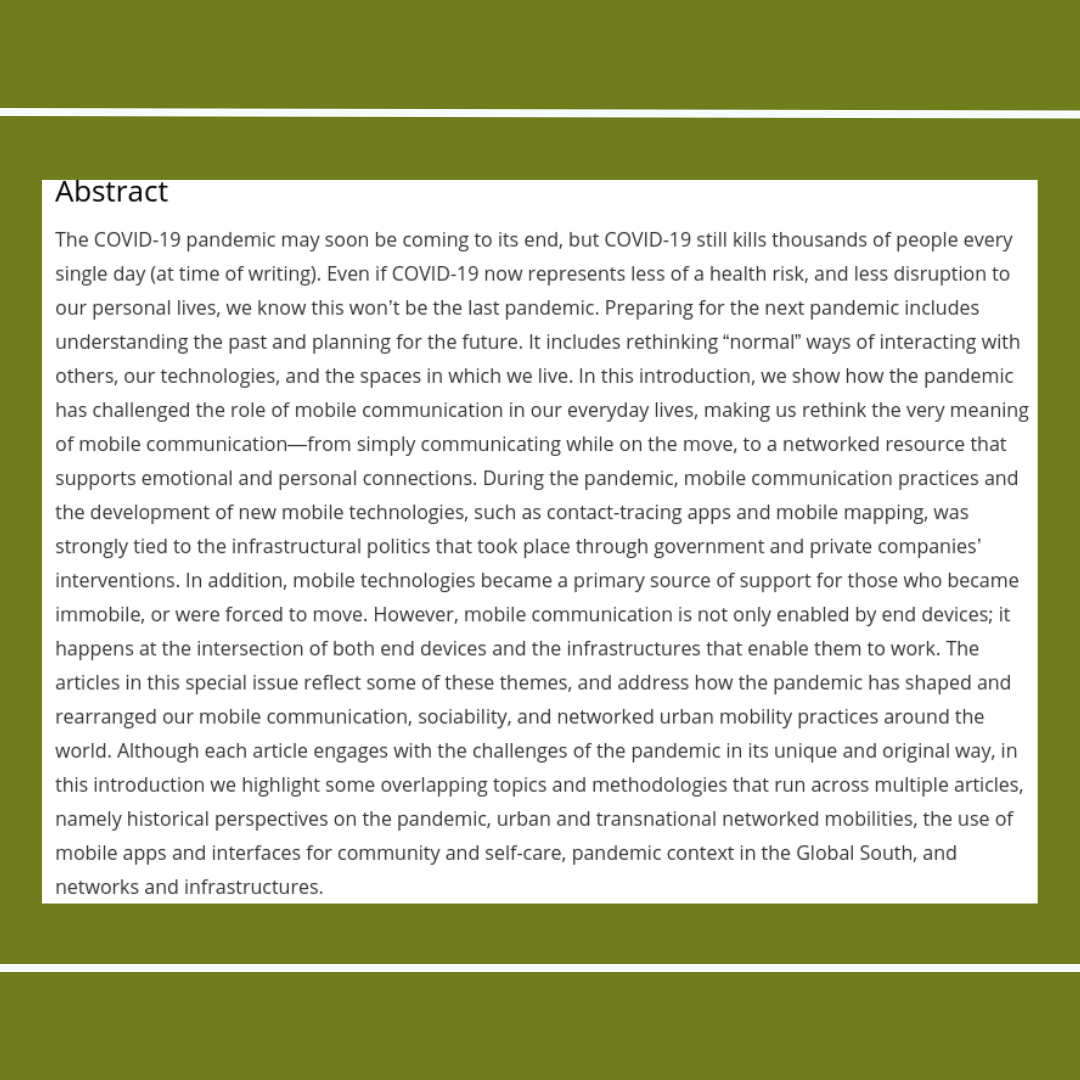
"COVID-19 Now and Then..."
March 5th, 2024, published on Sage Journals.
This week, the Networked Mobilities Lab directs our focus back to the COVID-19 pandemic, a seismic event that shook the world to its core, creating both cohesive online communities and perpetuating unmanageable divides.
Drs. Adriana de Souza e Silva and Mai Nou Xiong-Gum delve into the role of moblie communication during these challenging years, examining how some of us were rendered immobile while others were forced to move. Regardless, it is undeniable that the global pandemic was a culture-changing event for us all.
To read the full publication, view the link.
Recent News
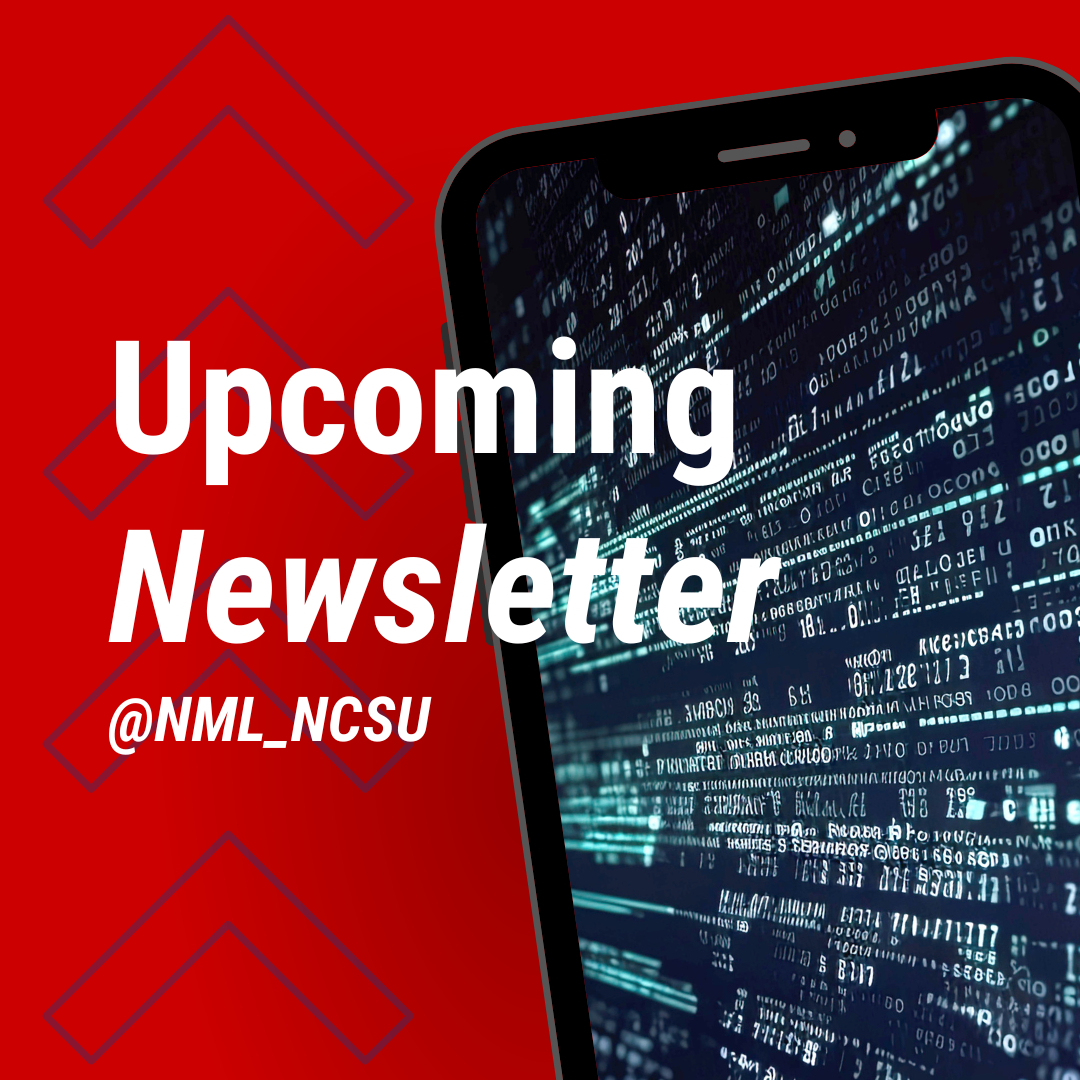
Upcoming Newsletter (March / April)
February 26th, 2024: Read the Full Issue!
The Networked Mobilities Lab is delighted to announce the upcoming release of our bi-monthly newsletter by early March. The newsletter will showcase recent projects from our esteemed researchers highlight the NML Spring Lecture Series (2024), and share other exciting news and developments within the field of mobile communication.
If you're interested in staying up-to-date with us, please visit the link to subscribe to our newsletter.
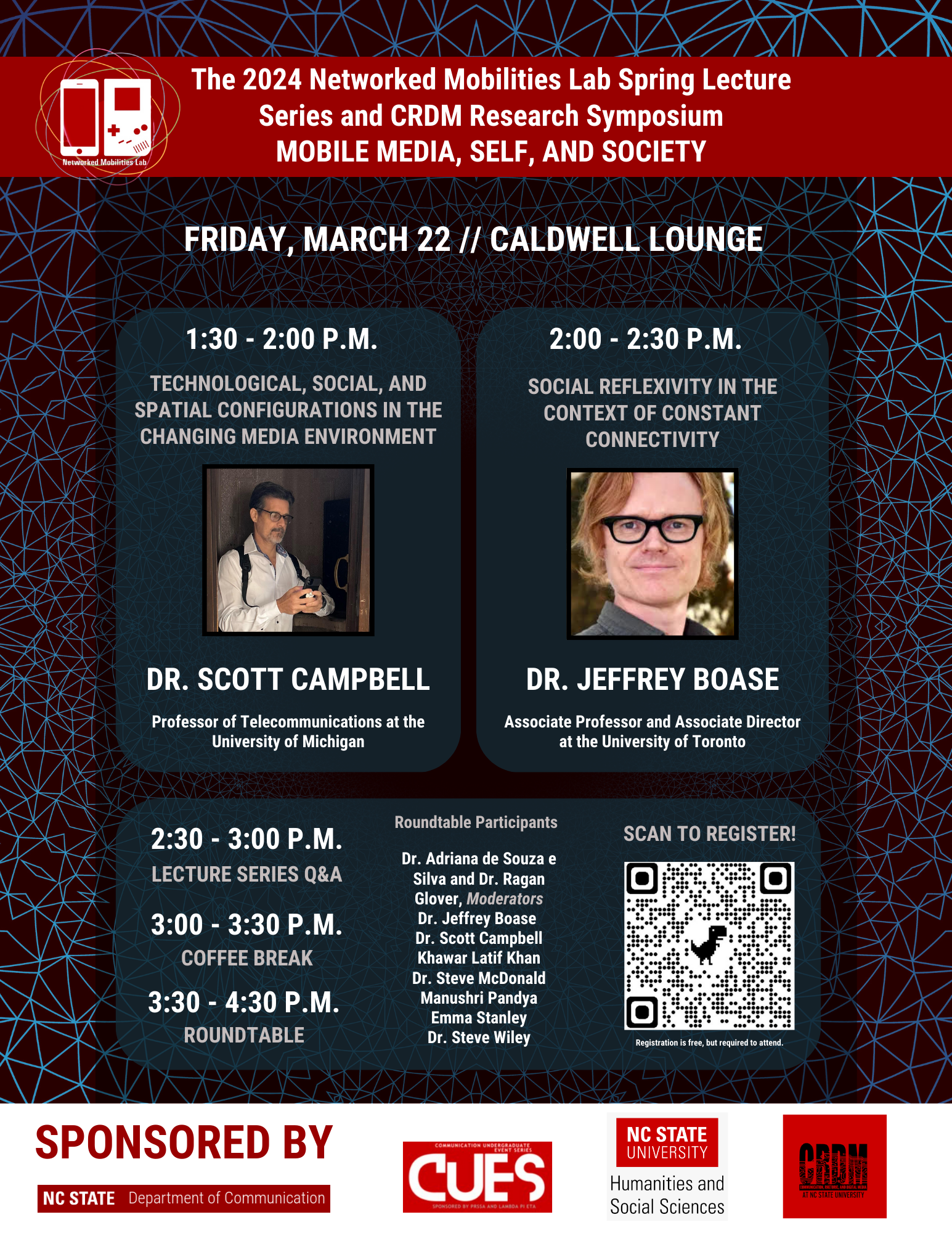
NML Spring Lecture Series (2024)
UPCOMING EVENT: March 22nd, 2024 in the Caldwell Lounge at NC State University.
We are thrilled to announce our upcoming lecture series, featuring Drs. Scott Campbell and Jeffrey Boase! The event is scheduled for March 22nd at 1:30 p.m. in the Caldwell Lounge, boasting a line-up of captivating seminars on digital media and mobile technology. A roundtable with associated faculty and graduate students is also on the agenda. Attendence is free, but registration is required! Scan the code or visit the link to secure your place in this annual tradition!
Dr. Scott Campbell, a professor of Telecommunications at the University of Michigan, will explore the "...technological, social, and spatial configurations in the changing media environment" during his talk. Learn more about Dr. Campbell's ground-breaking contributions to the field of mobile communication by clicking the link.
Dr. Jeffrey Boase, an associate professor and director at the University of Toronto, will delve into "...social reflexivity in the context of constant connectivity" in his talk. Explore Dr. Boase's intriguing research and publications by clicking the link.
Recent News
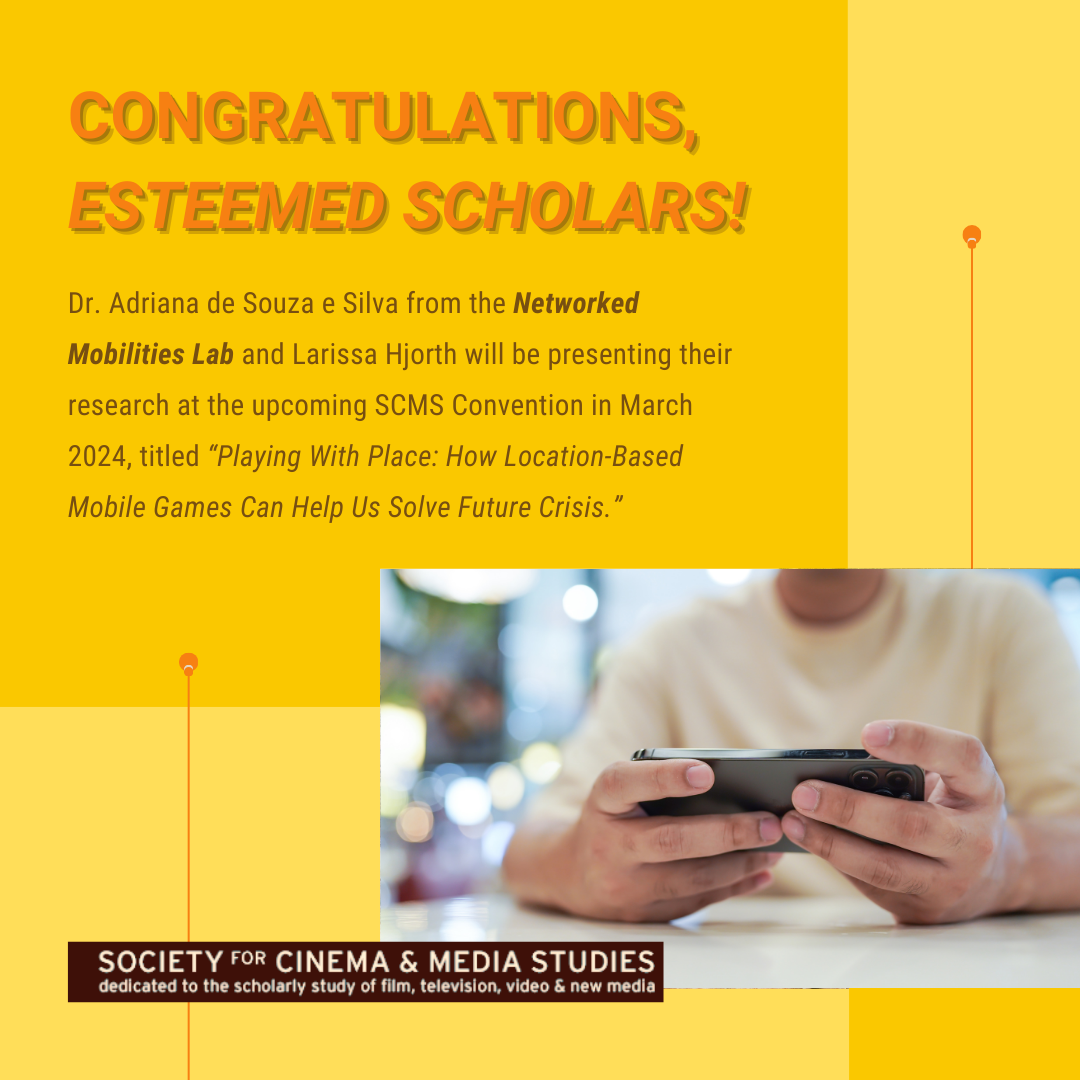
NML Participation in SCMS Conference (2024)
February 12th, 2024: Learn More About the SCMS Conference!
The Networked Mobilities Lab extends a hearty congratulations to all of the accepted participants for the SCMS Conference (2024), with a special acknowledgement to our esteemed Dr. Adriana de Souza e Silva and colleague Larissa Hjorth!
These scholars will be heading to Boston in March to present their research, titled "Playing With Place: How Location-Based Mobile Games Can Help Us Solve Future Crisis." We invite you to delve into the conference program and show your support for our lab members during their insightful presentations.
For more details, check out the link.
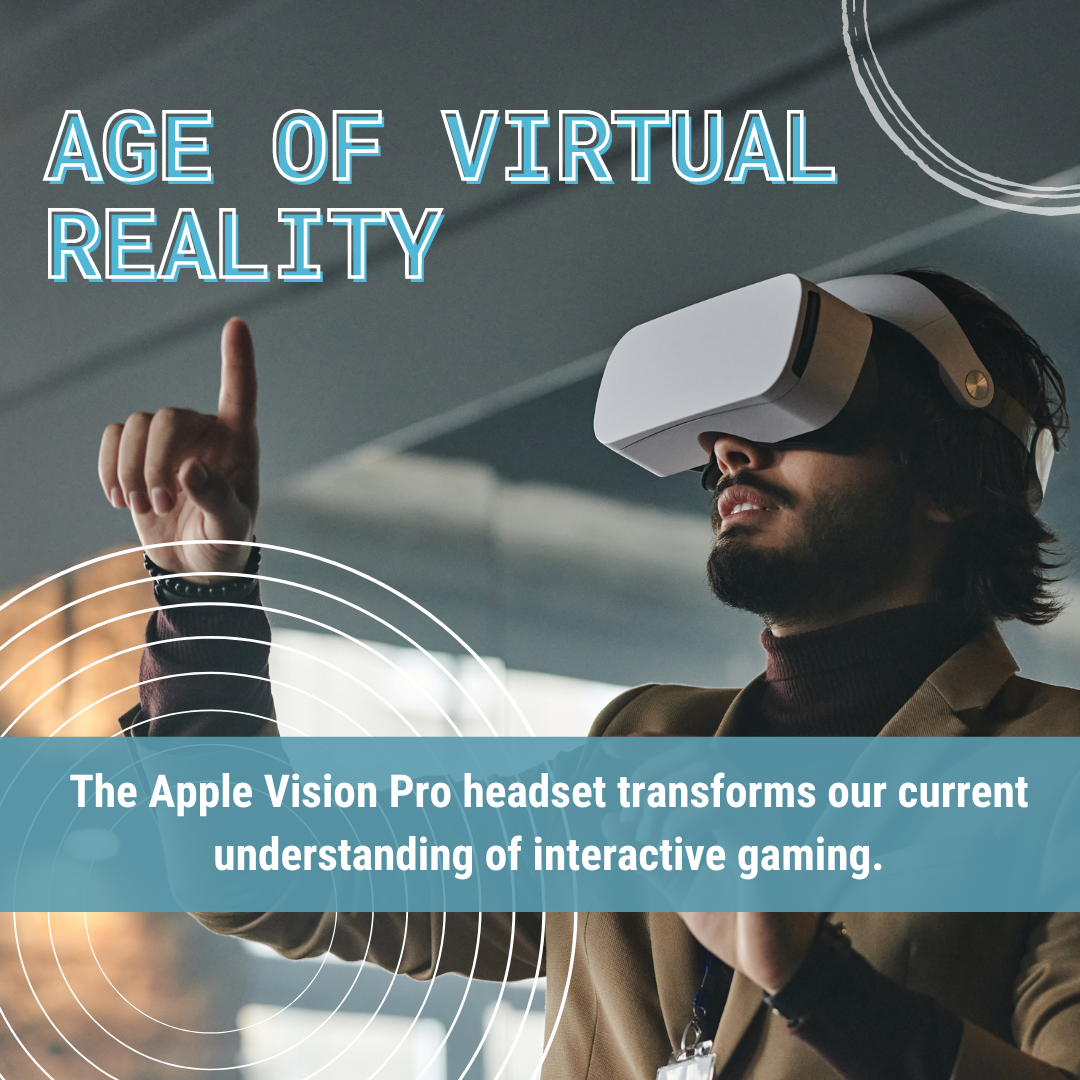
Review of the Apple Vision Pro Headset
February 6th, 2024: Watch Here!
Virtual reality, a technology that was previously confined to sci-fi novels, has seamlessly integrated into our everyday lives. It is constantly evolving and becoming more refined with each generation.
In early February, 2024, Apple entered the virtual reality arena, launching its own headset and positioning itself in direct competition with other tech giants like Meta and Valve. The convergence of mobile technology and digital augmentation in VR is compelling, and Marques Brownlee's video essay delves into the Apple Vision Pro, presenting it as a significant component of mobile history.
For an in-depth review, check out the link.
Recent News
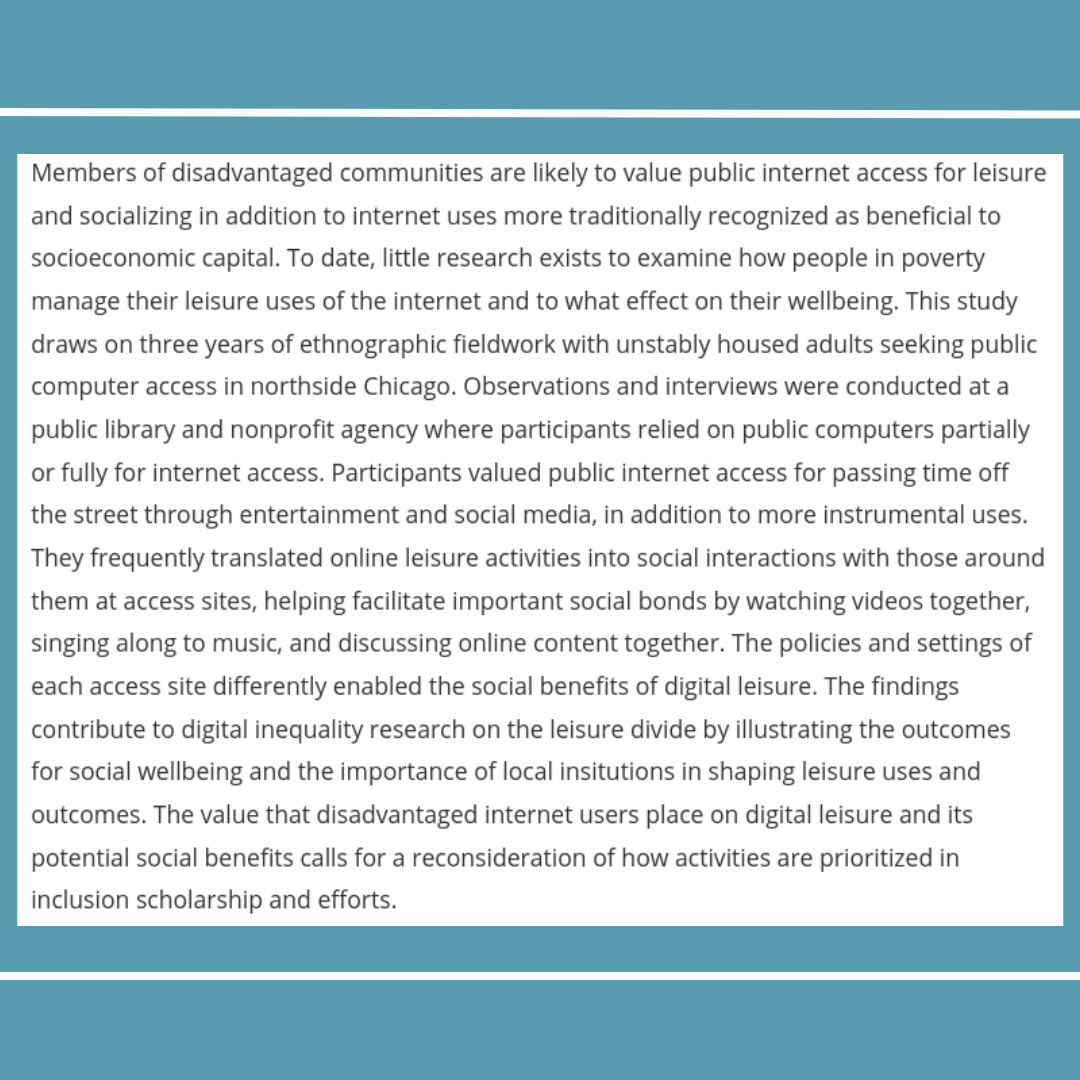
"You Can't Talk at the Library..."
February 1st, 2024, published on Taylor & Francis Online.
This week, the Networked Mobilities Lab is featuring a noteworthly article from Dr. Will Marler, one of our esteemed colleagues. Dr. Marler holds a position as a professor in the Department of Communication and Media Research at Tilburg University, Switzerland.
This publication, titled "You Can't Talk at the Library: The Leisure Divide and Public Internet Access For People Experiencing Homelessness" explores the faciliation of social activities through the Internet and sheds light on the digital inequalities surrounding its somewhat inconsistent accessibility.
To delve into Dr. Marler's research in detail, check out the link.

Upcoming Newsletter Announcement
January 24th, 2024: Read the Full Newsletter.
Save the date! The Networked Mobilities Lab is set to release the January/February issue of our bi-monthly newsletter on February 1st! Dive into a diverse array of content, including recent publications from esteemed lab members and a warm welcome to incoming graduate students.
If you'd like to keep up with the Networked Mobilities Lab, feel free to subscribe by checking out the link!
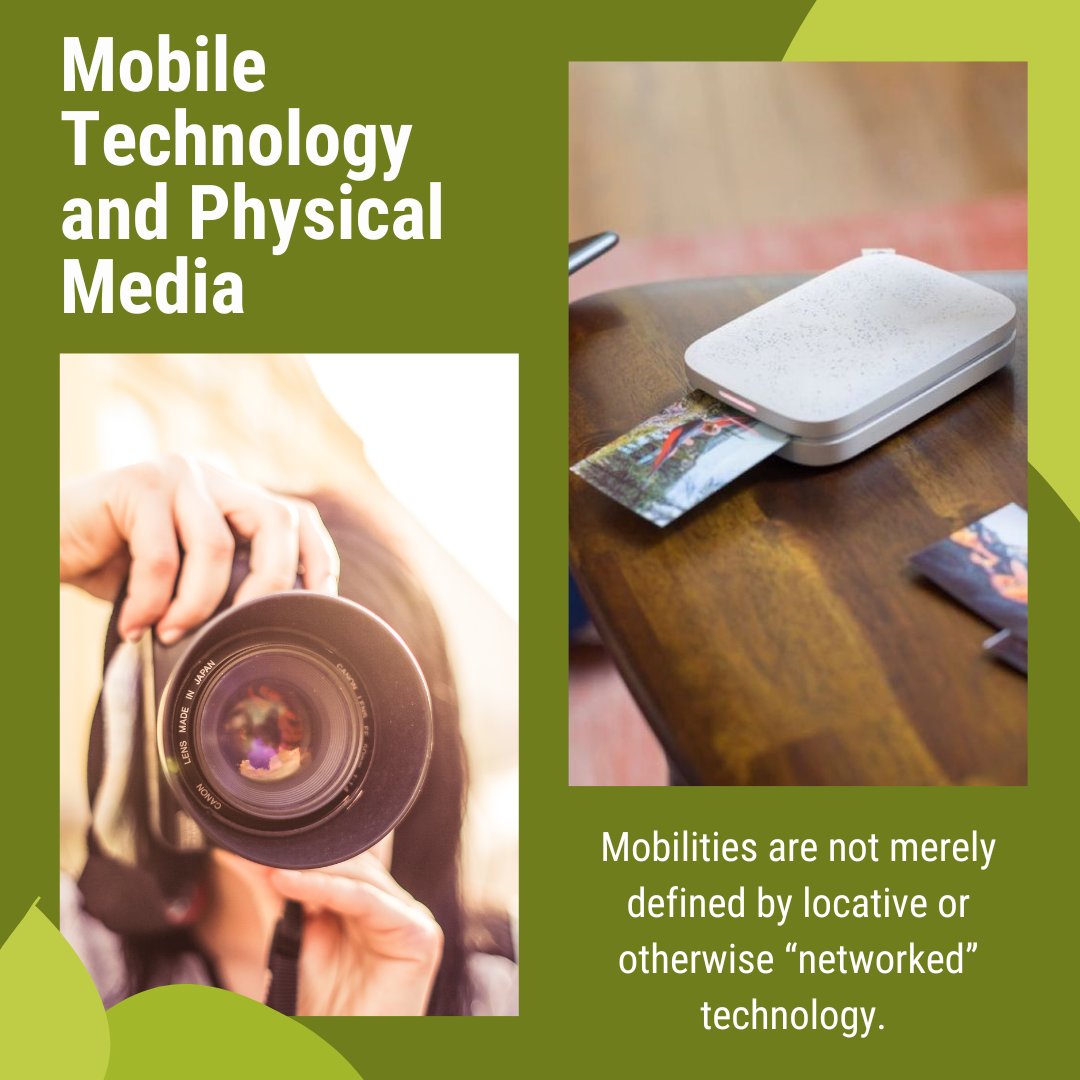
Mobile Technology and Physical Media
January 18th, 2024, at NC State University.
Mobilities are not merely defined by locative or otherwise "networked" technology. The significance of physical media, such as photographs, is often overlooked in this regard. Cameras and travel-sized printers are just as integral to mobile technology as the gaming consoles and apps that one typically associates with the field. These devices are seamlessly woven into our daily lives, accompanying us wherever we go and serving as tools to connect with others.
The Networked Mobilities Lab encourages you to investigate the role of physical media as it relates to mobile technology. Can you think of any changes that have occurred in recent years, and what can we anticipate for the future?

About the Networked Mobilities Lab
January 9th, 2024, at NC State University.
What's a better way to start the new year than proudly introducing our lab for those who may not be familiar with our research?
We are the Networked Mobilities Lab, based at NC State University but spanning across numerous institutions in countries around the world. Our research is uniquely focused on mobile technology and its dual role in bringing us together while also causing divides, all continually evolving with modern technological advancements.
If you're interested in learning more about the Networked Mobilities Lab, we encourage you to explore our website!